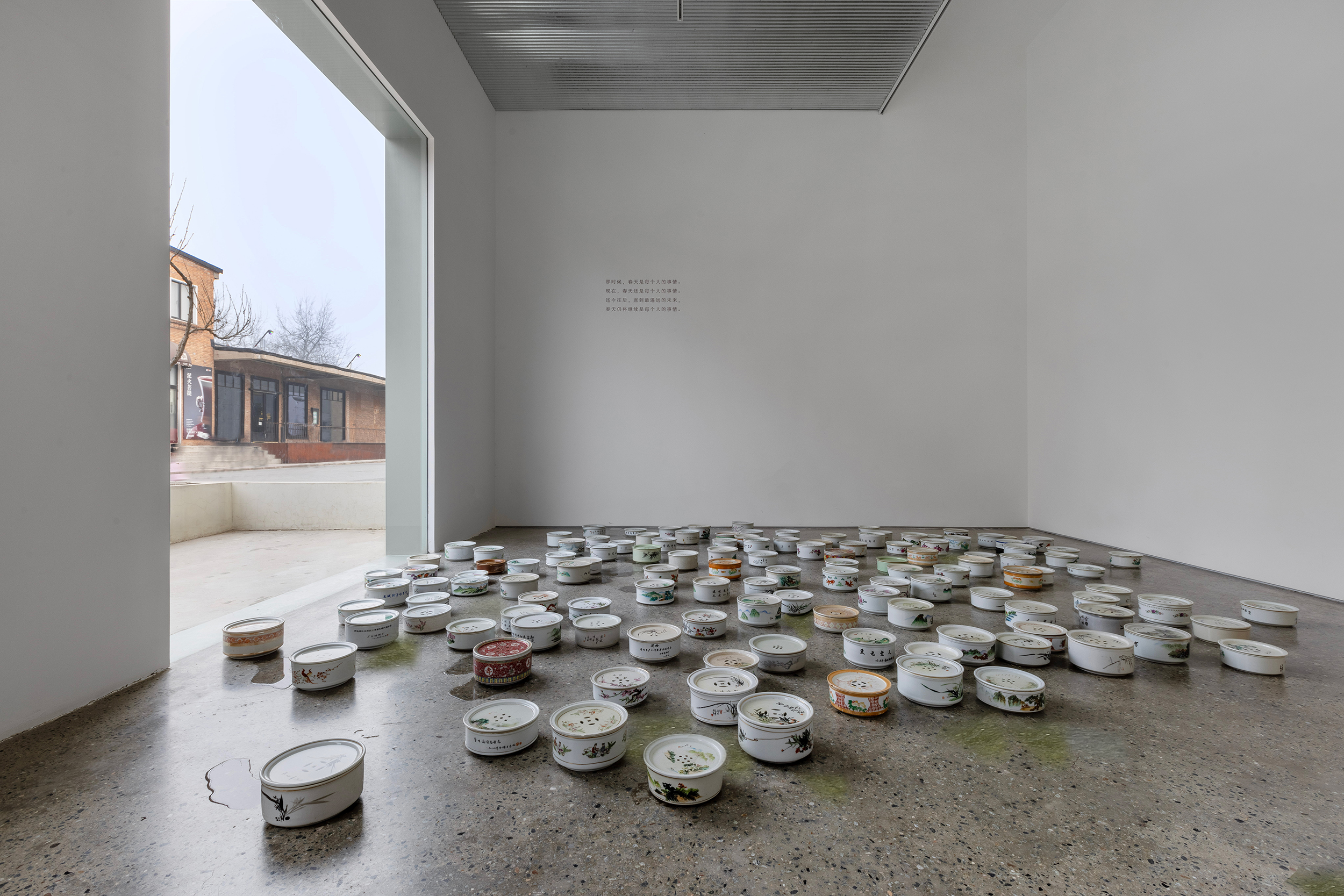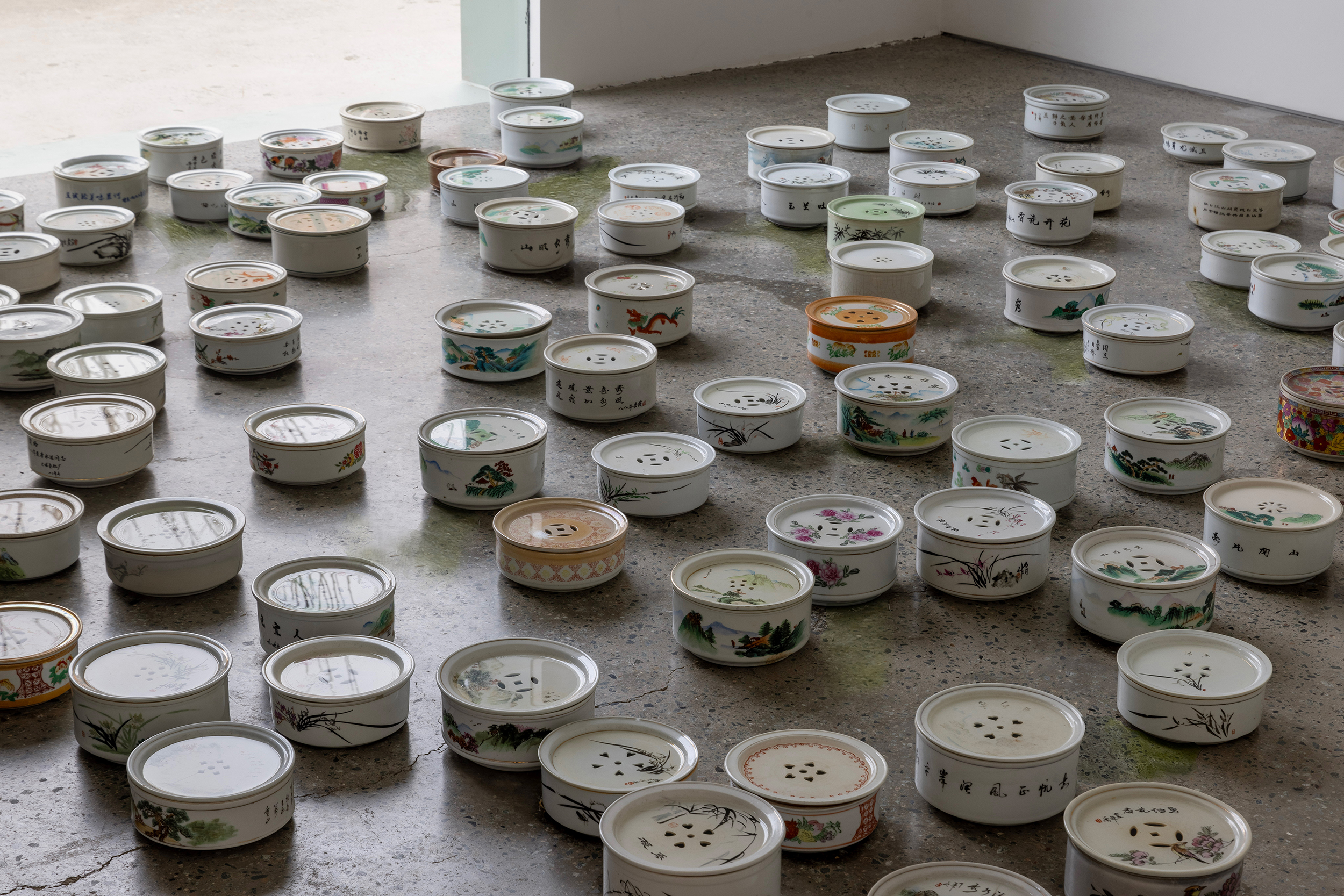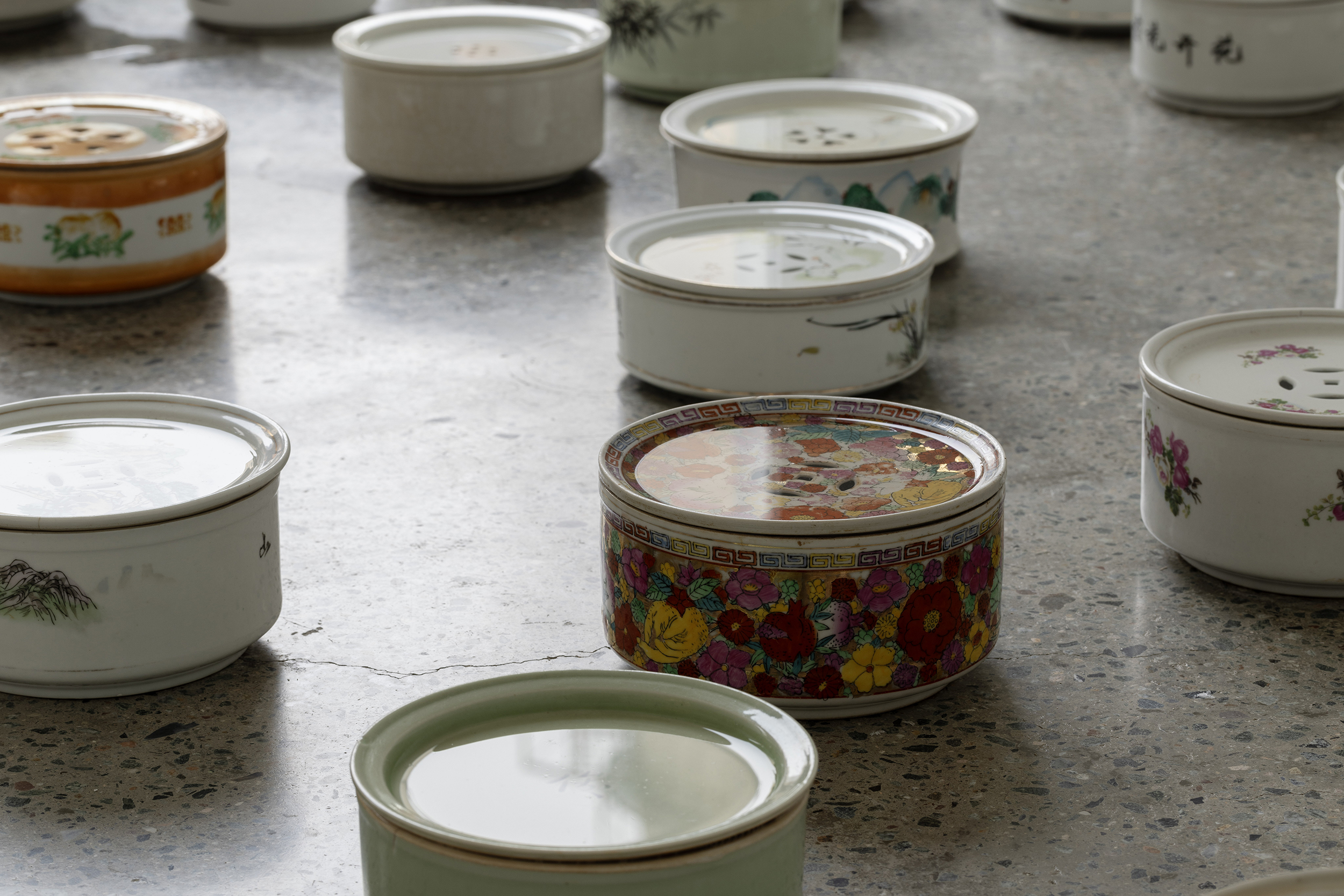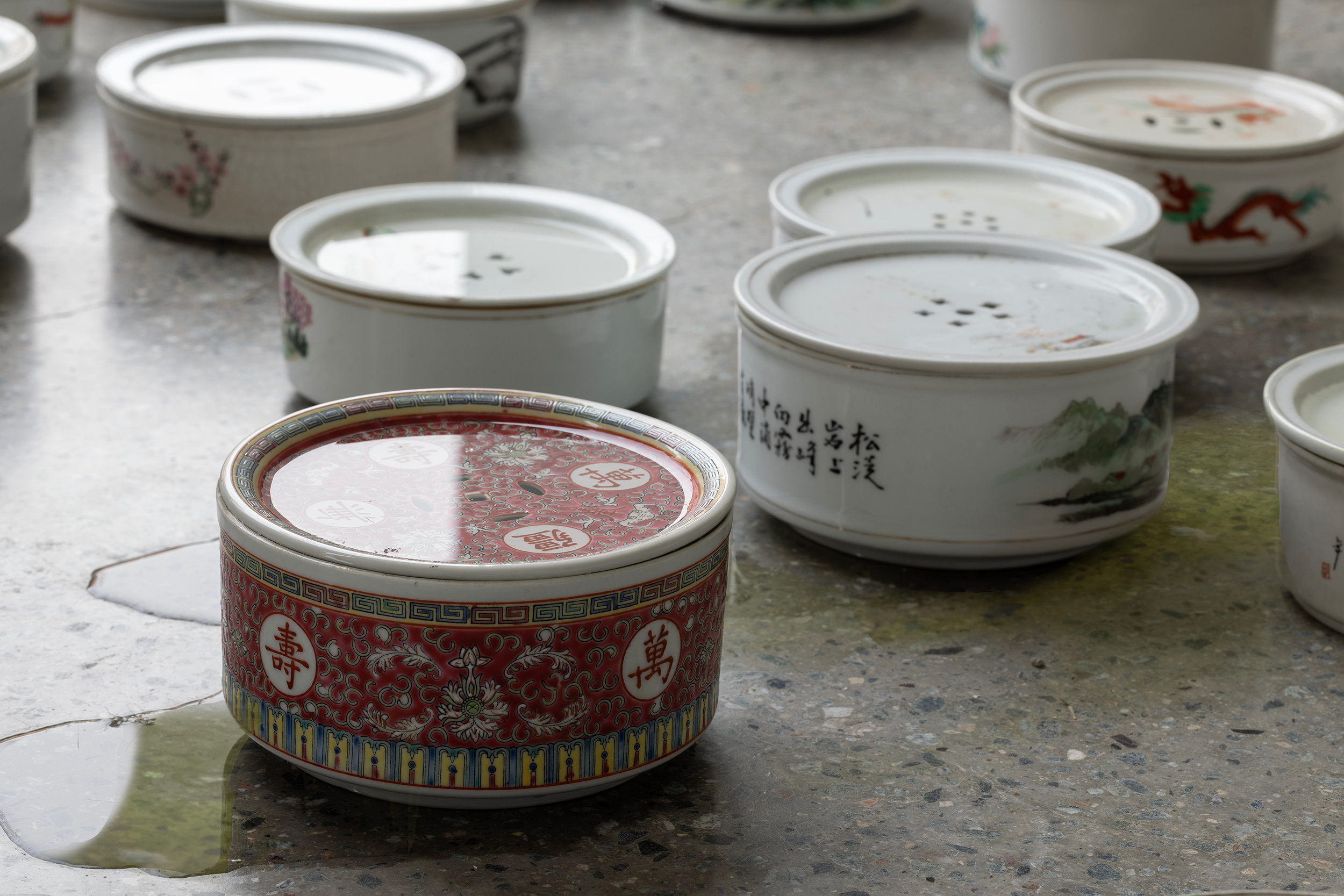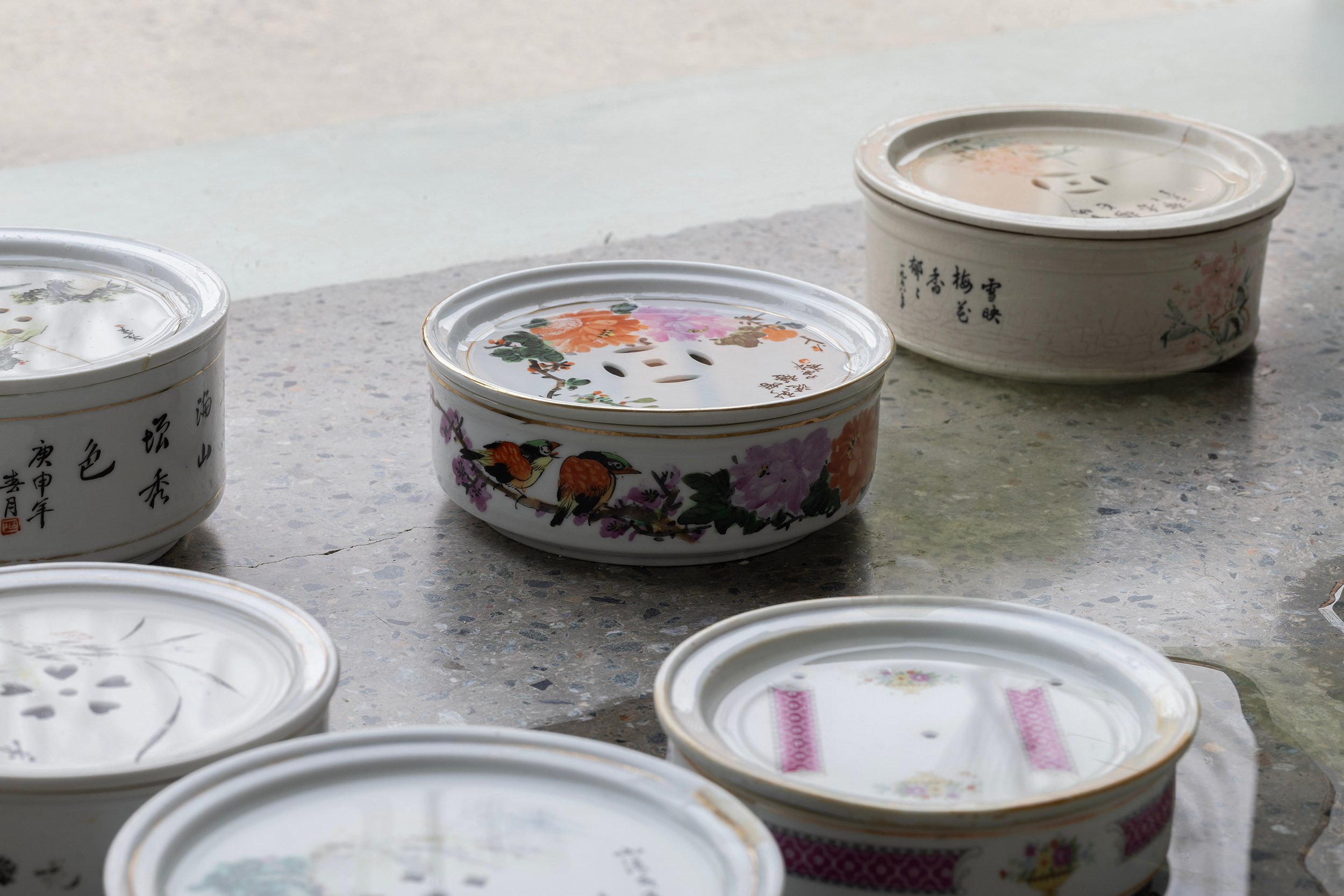He Chi: Ode to Spring
This post is also available in:
 简体中文 (Chinese (Simplified))
简体中文 (Chinese (Simplified))  English
English
In 2021, He Chi came across a round porcelain tea boat by chance. This type of teaware, commonly used by ordinary people, was popular in southern China from the early 1970s to the late 1980s. Its surface was often adorned with literati-style landscapes, flowers, birds, and auspicious motifs. Through using the tea boat, He Chi experienced a state of self-sufficiency and internal harmony— a naturally flowing individual consciousness distinct from today’s prevailing culture of awakening.
For He Chi, tea drinkers seek the essence of spring. In his memory, China in the 1970s and 1980s also carried the breath of spring—a time when people’s imagination about life began to emerge, yet the rapid acceleration of globalization had not yet arrived.
The work consists of 131 tea boats, each representing an individual. The time markers on the tea boats range from 1973 to 1989, coinciding with the period from He Chi’s birth to his coming of age at 16 as a northerner in China.
Of Spring / He Chi
Wangen sah’ ich verblühn, und die Kraft der Arme veralten.
–Hölderlin
Of spring,
what more can we know?
Many hurry their way through winter,
plucking shards of glass,
collecting bricks and stones,
clearing ashes, digging up spoil,
searching for springhead and envisaging its flow.
Take a deep breath and then a shallow one.
Stretch legs and open chest.
Cleanse blood…
…Of spring,
what more can we know?
Upon noon,
you leave the cattle to rest and go home,
setting up a sanctuary for yourself:
chop firewood, build a fire, boil water and brew tea.
The aura that nurtures personality
permeates under the eaves
where swallows quarrel.
What you find fragrant,
we find bitter –
salt, for example.
…Of spring,
what more can we know?
It’s been years since my senses became numb,
my spirit barren, and my material existence, cold and hard.
I’ve grown fond of square dancing and late-life romance;
of things that are within easy reach;
of evidential research and participation.
Through thick and thin, through wind and rain,
I am trapped in the mundane.
My seasons never change.
I’m alive, but unlike those who have seen spring,
I’m stripped of the concept.
…Of spring,
what more can we know?
Poem translated by Wu Chenyun
